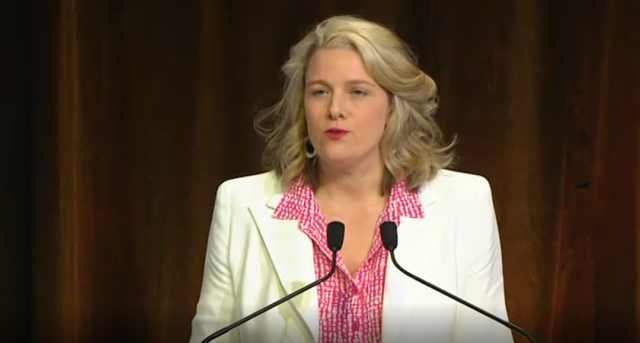
By Mikayla van Loon
In a boost to solve the urgent need for workers, the Federal government announced on day two of the Jobs and Skills Summit an adjustment to the permanent skilled migration intake for the next financial year, seeing it increase from 160,000 to 195,000 people.
Home Affairs Minister Clare O’Neil said this means 34,000 places in the regions, an increase of 9000 positions and 31,000 for the states and territories, an increase of 20,000.
“What it means is thousands more workers, thousands more nurses coming into the country, thousands more engineers so desperately needed coming into the country in this financial year,” she said.
While Ms O’Neil said the Labor government’s first focus will always be on creating jobs for Australians, it still won’t meet the shortfall.
“The skills shortage in our country is real and this is not a problem affecting just business and organisations. This is a problem affecting the everyday lives of every Australian.
“We have a teaching workforce at the end of their tether. We have nurses who cannot work the double and triple shifts that they have been pulling for the last three years. We have an agriculture workforce where farmers are having to leave fruit on vines rotting because there is no one to pick them.
“We’ve got flights being cancelled because there aren’t enough ground staff and we’ve got funerals being delayed because people can’t go through the funeral service.”
Immigration, Citizenship and Multicultural Affairs Minister Andrew Giles said ensuring this is possible requires the decreasing of time it takes to have a visa approved.
“There were almost a million visas waiting for this government at the election. Today, that number is 900,” he said.
“Since the election an additional 180 staff are working on visa processing. Right now, an additional 190 staff are being onboarded.”
Mr Giles said $36.1 million will be put into visa processing to “surge staff capacity by 500 over the next nine months.”
“Immigration is about nation building and central to this is the manner in which people are welcomed after they’ve made the decision to make Australia their home, whether for a period of time or for the rest of their lives,” he said.
“We want, indeed we need people to choose Australia and our processes and our policies must work together to support that choice.”
Prime Minister Anthony Albanese said in a media conference after the wrap up of the Jobs and Skills Summit on the afternoon of 2 September that he would like to see people transition from temporary visa to permanent visa holder or citizen in the long term.
Speaking on the panel discussion about skilled migration was nurse and Australian Nursing and Midwifery Federation Federal Secretary Annie Butler, who said nurses were “exhausted and genuinely burnt out”.
“Health systems across the country are under enormous stress and while the government is working on it, the aged care crisis remains unresolved and…ongoing impacts of Covid shortages in some areas are acute,” she said.
Ms Butler said however, these experiences are not just happening in Australia and it would be irresponsible to worsen the situation for other countries.
“We also cannot return to the pre-pandemic situation of using temporary migration to fill skills gaps because we have failed to conduct proper workforce planning, failed to train and skill local workers and failed to offer secure quality jobs across sectors.
“We especially cannot return to the previous practices of treating temporary migrant workers as disposable. Additional workers are urgently needed…in health and aged care and migrant workers have a long history of contributing to our health workforces.”
Much of the healthcare workforce has some connection to an overseas country, with 20 per cent of nurses and midwives educated overseas and almost 40 per cent born overseas.
“We must plan appropriately, train our local workforces, then encourage overseas skills through permanent migration programmes supported by industry wide sponsorships, access to affordable housing, childcare, and health care and genuine secure futures as vital contributors to Australian society.”
University of Adelaide Associate Professor in Law Dr Joanna Howe said however, encouraging overseas workers to stay in Australia on a permanent basis requires an overhaul of the current exploitation of migrants in workplaces.
“What we need to recognise is that in industries like care and hospitality and horticulture, we should not be relying on a revolving door of temporary migrants because locals don’t want to work there,” she said.
“The fundamental problem for the revolving door is low wages, low conditions and poor job quality.
“We don’t offer permanent visas for these industries because we know the minute we give a migrant permanency, they’re not going to stay in that horticulture job or that care job because the conditions and the job quality is so poor.”






